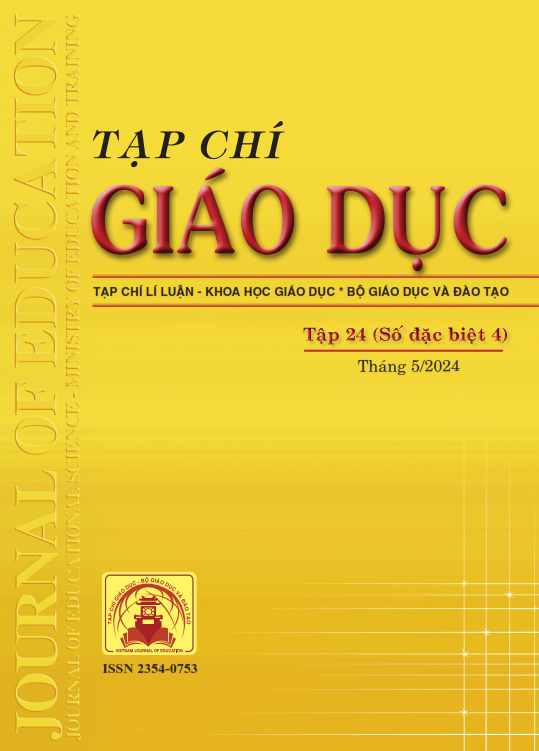Thực trạng năng lực số của giáo viên tiểu học tại quận Tân Phú, Thành phố Hồ Chí Minh
- Từ khóa:
- Competence
- digital competence
- primary school
Tóm tắt
The use of technology in education can provide rich digital tools and resources for teachers to use in the teaching process. This places an increasing need on teachers' digital competencies to use technology effectively. This study aims to generalize and emphasize that improving primary school teachers' digital competencies is an important factor to improve the quality of education in the digital age; give an overview of concepts and content of digital competencies such as digital knowledge, digital skills and digital communication; some conditional factors affecting primary school teachers' digital competencies. The results demonstrate the importance of primary school teachers' digital competencies to grasp current challenges and trends in education, while harnessing the potential of technology to create a digital learning environment for the future.
Tài liệu tham khảo
Bộ GD-ĐT (2018). Chương trình giáo dục phổ thông - Chương trình tổng thể (ban hành kèm theo Thông tư số 32/2018/TT-BGDĐT ngày 26/12/2018 của Bộ trưởng Bộ GD-ĐT).
Calvani, A., Cartelli, A., Fini, A., & Ranieri, M. (2008). Models and instruments for assessing digital competence at school. Journal of E-learning and Knowledge Society, 04(3), 183-193.
Đỗ Văn Hùng (chủ biên), Trần Đức Hòa, Nguyễn Thị Kim Dung, Bùi Thanh Thủy, Nguyễn Thị Kim Lân, Đào Minh Quân, Đồng Đức Hùng, Bùi Thị Ánh Tuyết, Bùi Thị Thanh Huyền, Trần Thị Thanh Vân, Trịnh Khánh Vân (2021). Năng lực số - Khung năng lực số dành cho sinh viên. NXB Đại học Quốc gia Hà Nội.
Eshet, Y. (2004). Digital literacy: A conceptual framework for survival skills in the digital era. Journal of Educational Multimedia and Hypermedia, 13(1), 93-106. Ferrari, A. (2013). A Framework for Developing and Understanding Digital Competence in Europe. Luxembourg: European Union.
Ferrari, V. (2012). Building new knowledge through technology and media in a critical, creative, flexible, and ethical way. Journal of Media Literacy Education, 4(2), 123-135.
Lê Anh Vinh, Bùi Diệu Quỳnh, Đỗ Đức Lân, Đào Thái Lai, Tạ Ngọc Trí (2021). Xây dựng khung năng lực số cho học sinh phổ thông Việt Nam. Tạp chí Khoa học Giáo dục Việt Nam, số đặc biệt tháng 1, 1-11.
Spante, M., Hashemi, S. S., Lundin, M., & Algers, A. (2018). Digital competence and digital literacy in higher education research: Systematic review of concept use. Cogent Education, 5(1), 1519143. https://doi.org/10.1080/ 2331186X.2018.1519143
UNESCO (2018). A global framework of reference on digital literacy. UNESCO Institute for Statistics.
Vuorikari, R., Kluzer, S., & Punie, Y. (2022). DigComp 2.2: The Digital Competence Framework for Citizens - With new examples of knowledge, skills and attitudes. Publications Office of the European Union.
Đã Xuất bản
Cách trích dẫn
Số
Chuyên mục
Giấy phép

Tác phẩm này được cấp phép theo Ghi nhận tác giả của Creative Commons Giấy phép quốc tế 4.0 .












